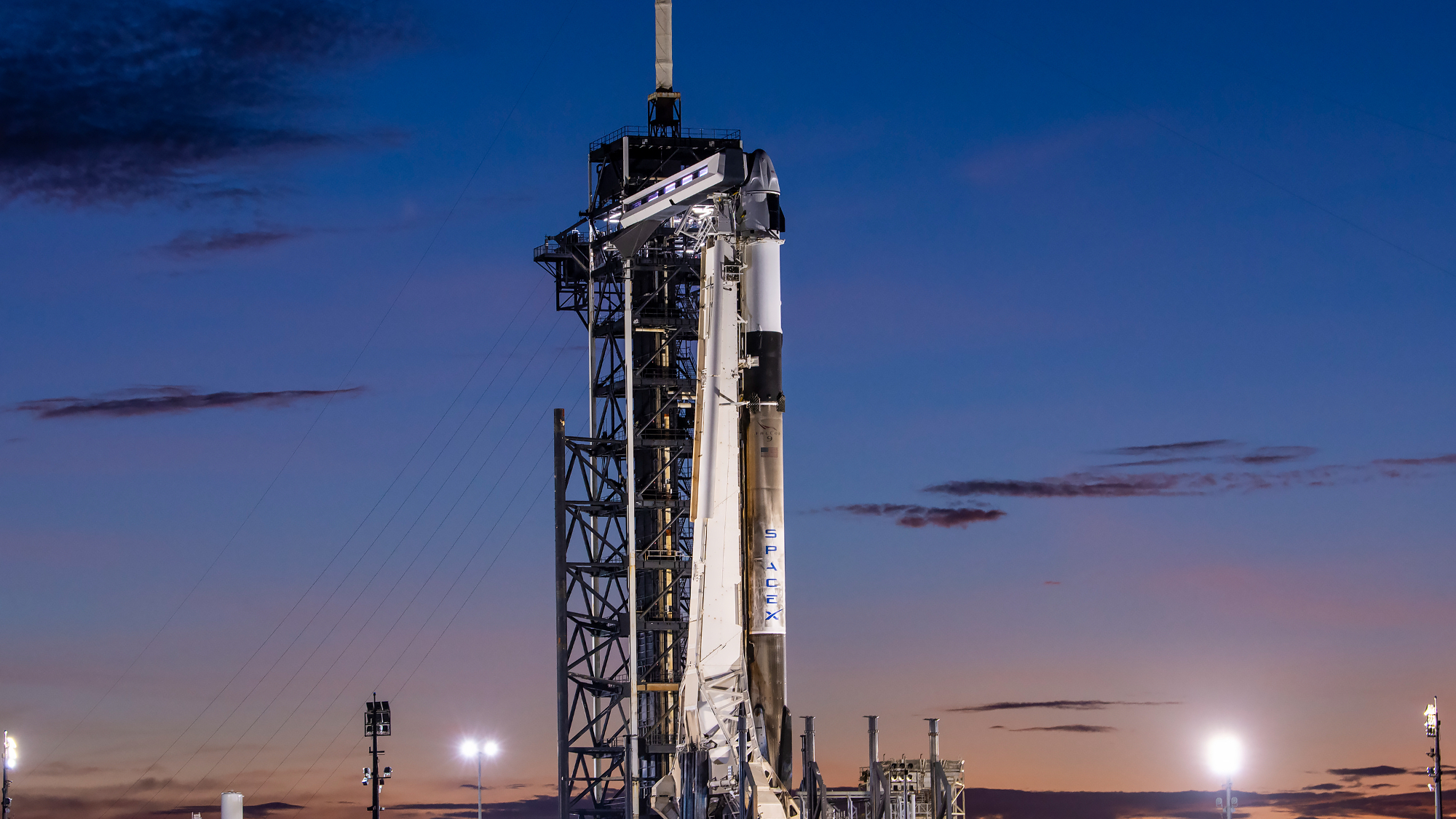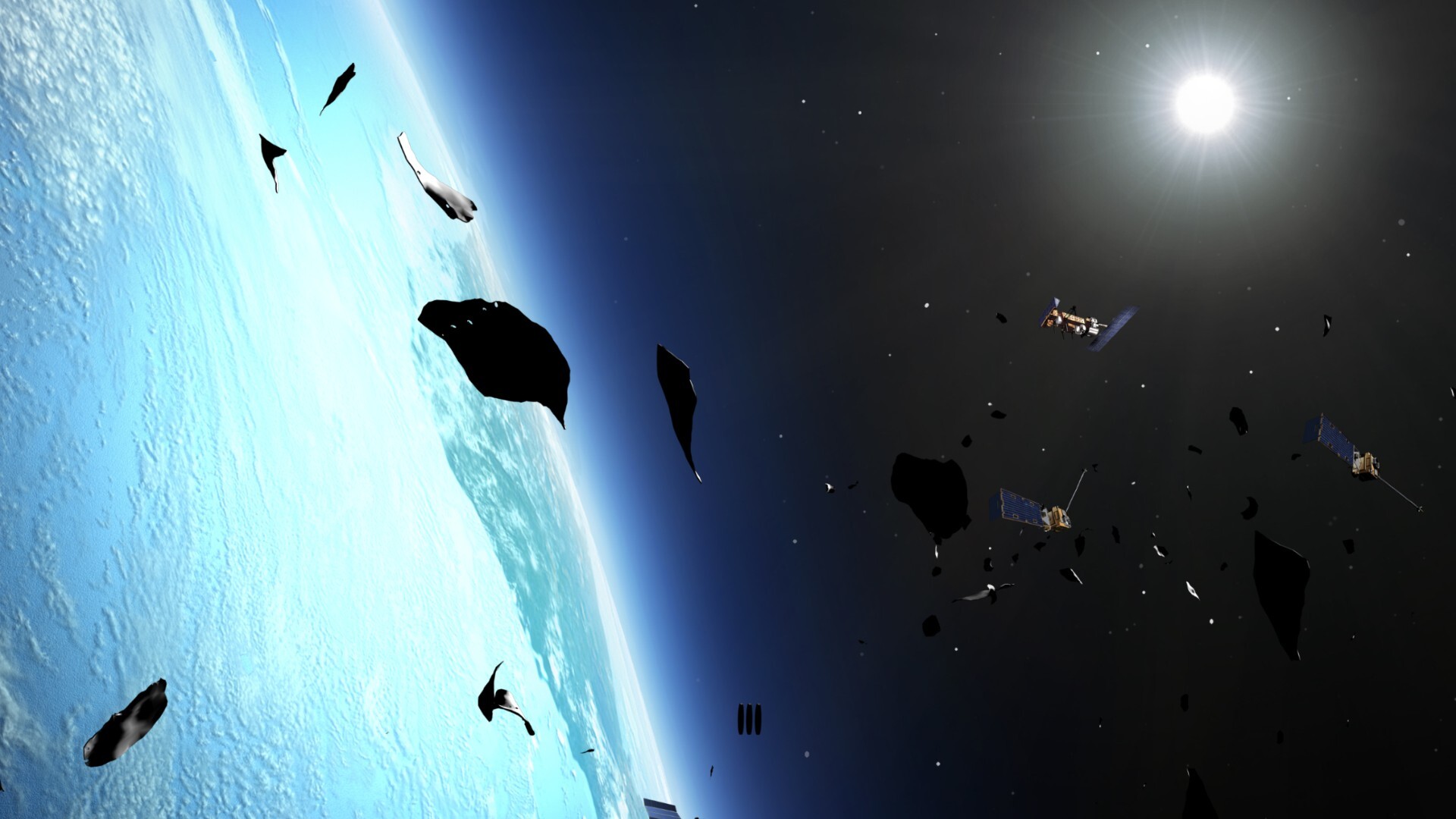SpaceX delays Polaris Dawn astronaut launch to Aug. 28 due to helium leak

Update for 11 p.m. ET on Aug. 27: SpaceX has now delayed the Polaris Dawn launch until no earlier than Aug. 30 due to bad weather. Read our delay story here.
We'll have to wait at least another day to see SpaceX's historic Polaris Dawn astronaut mission lift off.
Polaris Dawn, which will conduct the first-ever private spacewalk, had been scheduled to launch early Tuesday morning (Aug. 27) from NASA's Kennedy Space Center in Florida. But a helium leak has forced a delay of at least 24 hours.
"Teams are taking a closer look at a ground-side helium leak on the Quick Disconnect umbilical. Falcon and Dragon remain healthy and the crew continues to be ready for their multi-day mission to low Earth orbit. Next launch opportunity is no earlier than Wednesday, August 28," SpaceX announced in an X post on Monday evening (Aug. 26).
The launch, atop a Falcon 9 rocket, is now targeted for 3:38 a.m. EDT (0738 GMT) on Wednesday, though there are two backup opportunities on that day as well — 5:23 a.m. EDT (0923 GMT) and 7:09 a.m. EDT (1109 GMT). You can watch the action via a SpaceX webcast, which will begin at around midnight EDT (0400 GMT).
A "quick disconnect umbilical" is an interface connecting the Falcon 9 with a line coming from the launch tower. Helium is not a propellant for the Falcon 9's Merlin engines — they burn kerosene and liquid oxygen — but SpaceX uses helium to pressurize fuel lines.
Breaking space news, the latest updates on rocket launches, skywatching events and more!
Polaris Dawn is the first of three planned missions in the Polaris Program, a human-spaceflight project funded and organized by billionaire entrepreneur Jared Isaacman.
Isaacman will command Polaris Dawn. He'll be joined aboard the mission's Crew Dragon capsule by three crewmates: pilot Scott "Kidd" Poteet, a former lieutenant colonel in the U.S. Air Force, and mission specialists Sarah Gillis and Anna Menon, both of whom are SpaceX engineers.
Isaacman and Gillis will conduct a spacewalk on Day 3 of the mission — the first extravehicular activity ever performed on a commercial mission.
Polaris Dawn also aims to get a maximum of about 870 miles (1,400 kilometers) from Earth. That will be farther away than any crewed mission since Apollo 17 back in 1972.

Michael Wall is a Senior Space Writer with Space.com and joined the team in 2010. He primarily covers exoplanets, spaceflight and military space, but has been known to dabble in the space art beat. His book about the search for alien life, "Out There," was published on Nov. 13, 2018. Before becoming a science writer, Michael worked as a herpetologist and wildlife biologist. He has a Ph.D. in evolutionary biology from the University of Sydney, Australia, a bachelor's degree from the University of Arizona, and a graduate certificate in science writing from the University of California, Santa Cruz. To find out what his latest project is, you can follow Michael on Twitter.
